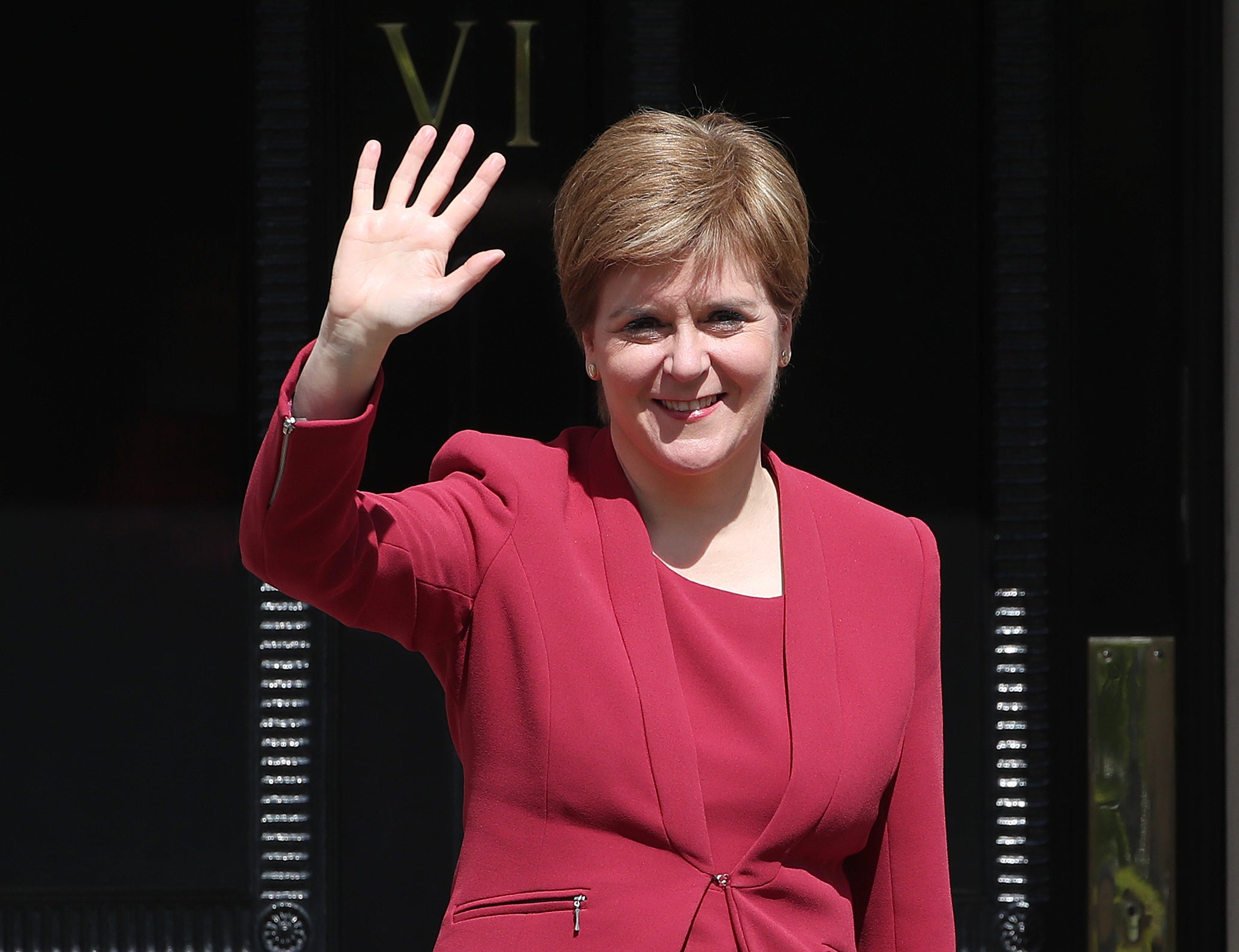Nicola Sturgeon: I feel responsibility to be open about the menopause
Speaking on a podcast, the First Minister said she was ‘in the foothills’ of the menopause and she feels a responsibility to talk about it.

Your support helps us to tell the story
From reproductive rights to climate change to Big Tech, The Independent is on the ground when the story is developing. Whether it's investigating the financials of Elon Musk's pro-Trump PAC or producing our latest documentary, 'The A Word', which shines a light on the American women fighting for reproductive rights, we know how important it is to parse out the facts from the messaging.
At such a critical moment in US history, we need reporters on the ground. Your donation allows us to keep sending journalists to speak to both sides of the story.
The Independent is trusted by Americans across the entire political spectrum. And unlike many other quality news outlets, we choose not to lock Americans out of our reporting and analysis with paywalls. We believe quality journalism should be available to everyone, paid for by those who can afford it.
Your support makes all the difference.Nicola Sturgeon has opened up about the prospect of going through the menopause and suggested Boris Johnson could benefit from experiencing imposter syndrome.
Speaking on a podcast about women over the age of 40, Scotland’s First Minister revealed she was “in the foothills” of the menopause.
In a personal discussion with author, Sam Baker for The Shift podcast, Ms Sturgeon said she was “so far out of my comfort zone” talking about the menopause but she feels a “responsibility” to be open about any challenges she faces.
Ms Sturgeon celebrated her 51st birthday last July – the average age for a woman in the UK to reach the menopause, according to the NHS.
The process, caused by declining oestrogen levels, usually occurs between the ages of 45 and 55 but Ms Sturgeon stressed that there was “still a massive amount of guesswork about it”.
“I would describe myself [as] still in the foothills; definitely there or thereabouts,” she said.
Expressing her uncomfortableness about discussing the menopause because of the “intensely personal nature of it”, Ms Sturgeon continued: “I’ve already had a conversation with my doctor about HRT (Hormone Replacement Therapy).
“I’ve not started taking it yet, and I did that deliberately because we’re the generation where I grew up thinking that HRT was some terrible, terrible thing and it was a badge of honour that you would have to push yourself through without it.
“Obviously, down to the study that turned out to be rubbish, and the fear that many women develop because of that, you just think how many women just suffer in silence and suffer unnecessarily because of that?
“It’s a strange thing. We talk about it much more and obviously it’s one of the things you talk about on this podcast a lot. And I’m very conscious of being a woman with a profile and a platform, a fair degree of influence, I feel a responsibility given that I’m at that age to talk about it myself.”
Arguing that women going through the menopause may have to work harder to overcome some stigma within society, she added: “I often think the world would be a much better place if it was ruled by women.
“Maybe the world would be much, much better places ruled by menopausal women.”
Addressing challenges women face compared to men, Ms Sturgeon said: “You really have to work so much harder to prove yourself so much more – particularly in the profession I’m in – to be taken probably half as seriously as your average man.
“It can be tiresome and wearisome that we still have to do that but I’ve come to a conclusion in my life that it’s actually quite a good thing because you end up being better because you work a lot harder.”
I look at someone like Boris Johnson and I think my God, a little bit of imposter syndrome would do you the world of good
Asked about whether she experiences “imposter syndrome”, Ms Sturgeon said: “Oh, yeah, absolutely.
“Partly I think it’s gender, although I know that some men suffer from that as well, partly it’s a sort of working class background.
“All through my career there’s a sense of almost always just waiting to be found out and you’re not really good enough to be doing this and that there are better people that could do it.
“There are times when I still feel that but – and it’s taken me a long time to get to this – I actually think that as long as it doesn’t completely cripple you and stop you doing the things that you want to do.
“A little bit of (imposter syndrome) I think is quite healthy and actually is good for you. I’m going to be sort of political here, probably too political, but I look at someone like Boris Johnson and I think, ‘my God, a little bit of imposter syndrome would do you the world of good’.
“Because, actually, it would make you take a step back and think, ‘maybe I’ve just got to work a bit harder, maybe I’ve just got to prove myself a bit more’ instead of gliding through life as if the world owes you a living.”